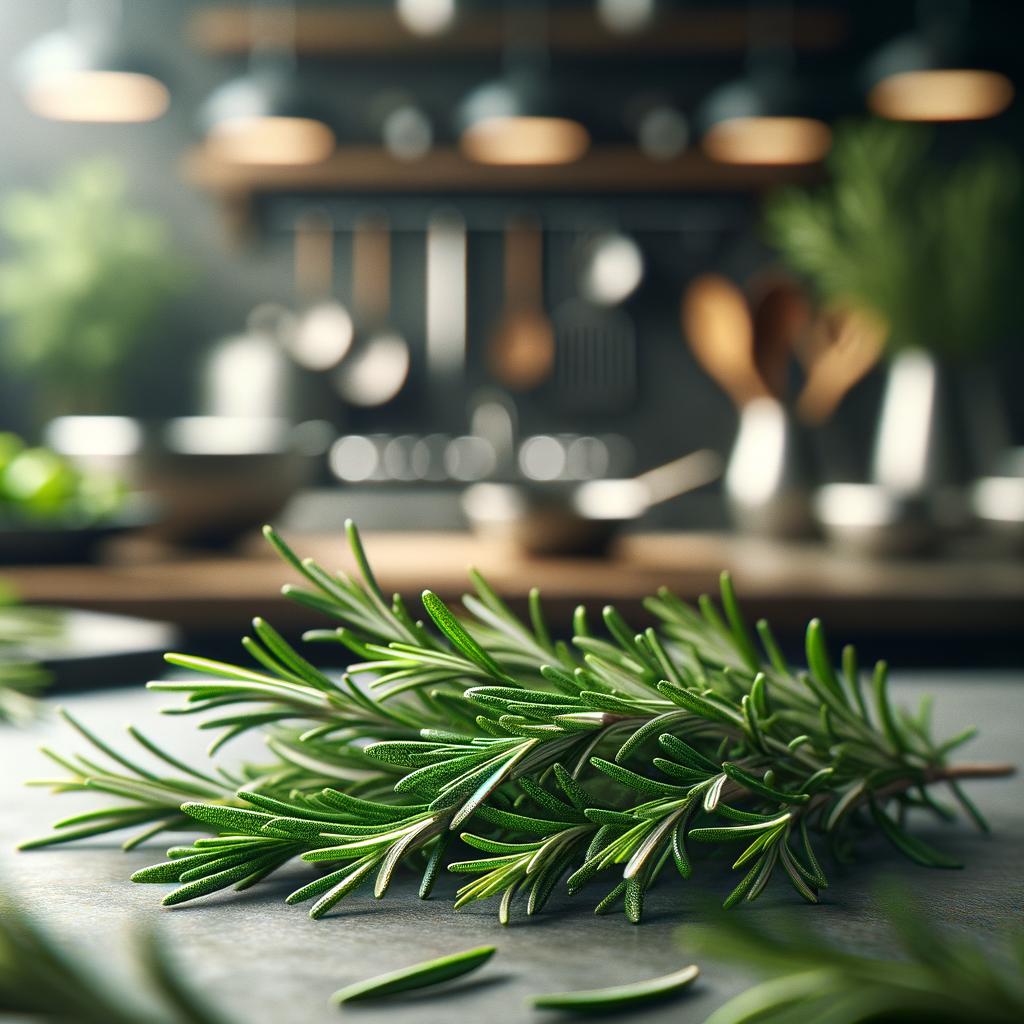Fresh Rosemary Sprigs

Description
Ah, Rosemary! This evergreen herb is a true delight to the senses. Its slender, needle-like leaves are a deep, rich green, often with a silvery underside that sparkles when kissed by sunlight. The texture is firm yet pliable, releasing an intoxicating aroma when gently crushed - a heady mix of pine, lemon, and woodsy notes that is utterly captivating. But what truly sets rosemary apart is its resilience. Unlike many other herbs, rosemary thrives in harsh conditions, retaining its vibrant flavor even when dried or cooked, making it a cherished ingredient across the globe.
Primary Uses
Rosemary's robust flavor profile makes it an indispensable part of many culinary traditions. In Mediterranean cuisine, it is often paired with olive oil to marinate meats or to flavor hearty stews. English cooking uses it in the classic Sunday roast, while French chefs infuse it into their bouquet garni. It's also a key component in Italian focaccia and pairs beautifully with garlic and lemon in Greek dishes. Beyond the kitchen, rosemary has been used for its medicinal properties, with its oil often used in aromatherapy for its calming effects. It also holds a special place in cultural ceremonies, often symbolizing remembrance and love.
History
Rosemary's history is as rich as its flavor. It's believed to have originated in the Mediterranean region and was considered sacred by the ancient Egyptians, Romans, and Greeks. The herb has been entwined with mythology and folklore, often associated with memory and fidelity. It's said that Greek scholars wore rosemary wreaths during exams to improve memory. Over time, its use spread across Europe and later to the New World, becoming a staple in many cuisines. Today, it's as popular as ever, with home cooks and professional chefs alike appreciating its unique qualities.
Nutritional Information
Rosemary isn't just a flavor powerhouse; it's also a nutritional superstar. It's rich in vitamins A and C, and is a good source of calcium and iron. It's also packed with antioxidants, particularly rosmarinic acid, that may help protect against damage by free radicals. In comparison to other herbs, rosemary stands out for its high iron content and its unique combination of antioxidants. However, as with all things, moderation is key - overconsumption can lead to digestive issues. So, while rosemary adds depth and complexity to your dishes, it also contributes to your health, making it a truly remarkable ingredient.

